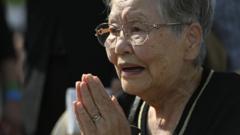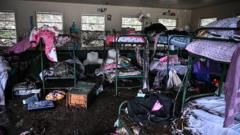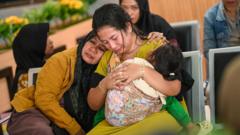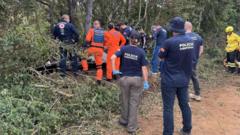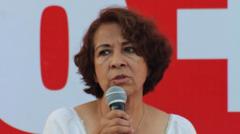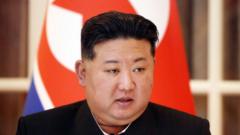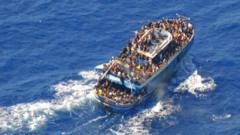**The commemoration of the atomic bombing in Nagasaki served as a poignant reminder of the devastating legacy and an urgent plea for peace in a world fraught with conflict.**
**Nagasaki Mayor Issues Stark Warning Against Nuclear Confrontation on 80th Anniversary of Atomic Bombing**

**Nagasaki Mayor Issues Stark Warning Against Nuclear Confrontation on 80th Anniversary of Atomic Bombing**
**Shiro Suzuki's Peace Declaration calls for an urgent end to global conflicts, fearing a return to nuclear warfare.**
On the 80th anniversary of the atomic bombing that devastated Nagasaki, the city’s mayor Shiro Suzuki delivered a fervent appeal for peace, denouncing the escalating global conflicts that threaten to lead humanity toward nuclear devastation. Speaking during a solemn ceremony, Suzuki emphasized the urgent need to break the cycle of confrontation that he believes could result in a nuclear war.
The atomic bomb, dropped on August 9, 1945, led to the deaths of around 74,000 people and subjected survivors to horrific health repercussions, including severe radiation-induced ailments. This year’s remembrance comes just days after the observance of the Hiroshima bombing, which claimed approximately 140,000 lives.
The tribute commenced with a moment of silence, alongside the historic ringing of Nagasaki's twin cathedral bells for the first time since the bombing, signaling a powerful message of peace. Symbolic acts of remembrance included water offerings, reminiscent of the suffering endured by victims who, in their final moments, pleaded for water.
In his speech, Suzuki lamented the current global landscape, stating, “Here we are, 80 years later, and it seems unfathomable that the world has come to this.” He called for an immediate cessation of violent disputes, warning that misusing force could lead to cataclysmic repercussions.
Within the audience, survivors like 93-year-old Hiroshi Nishioka recounted painful memories from the tragedy, highlighting the long-lasting terror that the atomic bomb's aftermath inflicted upon the Japanese populace. Nishioka shared that even those who escaped severe injuries faced life-threatening conditions in the years that followed, provoking a destruction that extended beyond immediate casualties.
This year, Nagasaki extended invitations to Israel and Russia—nations previously excluded from memorial events due to geopolitical tensions—reflecting a broader commitment to inclusivity in peace dialogues. As ongoing conflicts populate the global stage, including tensions between Russia and Ukraine, and the Israel-Hamas clashes, the call for disarmament is increasingly urgent.
The Treaty on the Prohibition of Nuclear Weapons, enacted in 2021 and ratified by over 70 nations, faces opposition from nuclear-armed states, with Japan also siding with those nations arguing that their nuclear arsenals provide crucial deterrents. As the world casts its gaze back on the horrors wrought by nuclear weapons, the need for collective action towards a more peaceful future remains a vital topic in contemporary discourse.

